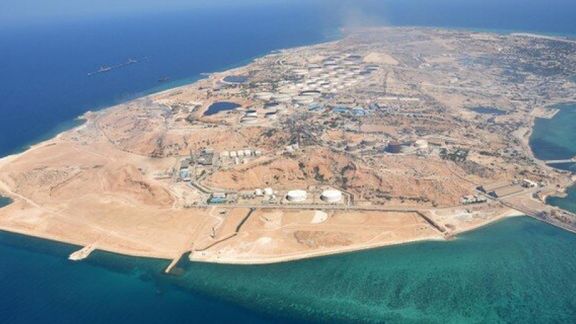Iranians Slam China’s Endorsement Of UAE Territorial Claim

A joint statement at the end of Chinese President Xi Jinping’s visit to Saudi Arabia has led to a strong backlash by Iranians who read it as betrayal by Beijing.
In the statement, the Gulf Cooperation Council and the Chinese side made a reference to three small islands in the Persian Gulf that Iran took over as its historic territory in 1971 but the United Arab Emirates claims as its own.
After Britain withdrew its forces from the region and decided to give independence to the small Arab littoral Sheikdoms, Iran’s Mohammad Reza Shah decided to take over the Greater and Lesser Tunbs and Abu Mousa. The UAE was just being formed and there was a serious political and military vacuum on the Arab side of the Persian Gulf.
Among other things, the concluding statement of the meeting that was attended by GCC dignitaries as well as the visiting Chines President Xi Jinping said: "The leaders affirmed their support for all peaceful efforts, including the initiative and endeavours of the United Arab Emirates to reach a peaceful solution to the issue of the three islands; Greater Tunb, Lesser Tunb, and Abu Musa, through bilateral negotiations in accordance with the rules of international law, and to resolve this issue in accordance with international legitimacy."
The Iranian official news agency did not translate this part of the statement in its report about the GCC meeting, but Iranians on social media were already harshly criticizing their government for a major failure. They asked the clerical rulers, what exactly went wrong that its ally, China acquiesced to such a statement.

Later on Saturday, Tehran had no choice but to start to react. Iran's Foreign Minister Hossein Amir-Abdollahian wrote in a tweet: "The three Persian Gulf islands are inseparable parts of Iran and are part of the eternal belongings of our motherland. We firmly insist on the need for respecting Iran's territorial integrity." The foreign ministry also invited the Chinese ambassador in Tehran to a meeting and expressed its displeasure about the statement.
The opponents of the Islamic Republic have been arguing for decades that Tehran should establish normal relations with the West and not isolate itself relying on meagre support from China and Russia. Now, these critics found the perfect example to slam the government for putting itself in this latest humiliating position.
Following the issuance of the statement, former Iranian diplomat Abdolreza Faraji Rad told Entekhab news website in Tehran: "It is unlikely that China would be the same for Iran following this statement. I have never imagined before that China would ever take a step against Iran's interests."
Faraji Rad added: "If this trend in China's behavior continues, in less than a decade, China will cause as much as concern for Iran as America does." The former diplomat also said: "It appears that China has given up its 25-year cooperation deal with Iran."
Foreign policy commentator Diako Hosseini tweeted: "Xi Jinping's contribution to the GCC statement about the three islands was an unfriendly behavior against Iran's territorial integrity and against China's claim of not interfering with the internal affairs of other countries. Summoning China's ambassador to the Foreign Ministry and demanding an official apology is the least that should be done."
However, foreign Policy analyst Amir Ali Abolfath tweeted that "warm relations between Saudi Arabia and China will serve Iran's interests if it leads to a reduction in US influence in Saudi Arabia."
Iranian journalist Sadra Mohaqeq wrote: "Iran's official stance about the ownership of the three islands has always been that Iran's ownership of the islands cannot be questioned. Calling on Iran to negotiate about this non-negotiable issue is a direct intervention in Iran's internal affairs and undermines Iran's territorial integrity."
Iranian analyst Ali Hossein Ghazizade wrote in a tweet: "The three Persian Gulf islands have been the subject of the most important security threats against Iran in recent decades. The Chinese, as the Islamic Republic's strategic allies did not stand by Iran. Do people still believe that Iran's territorial integrity will be preserved with such allies?"